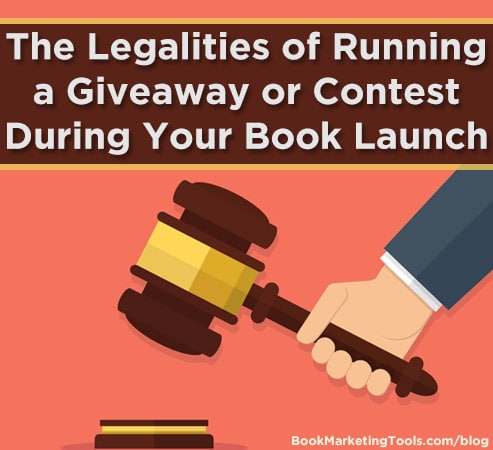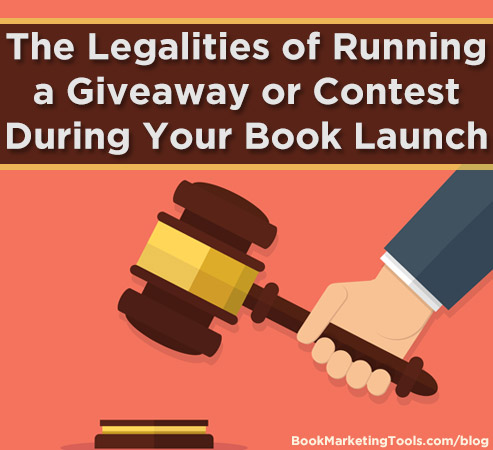Author: Book Marketing Tools / Source: bookmarketingtools.com Disclaimer: This post contains general information about the legalities of

Disclaimer: This post contains general information about the legalities of contests and giveaways. The information is not advice, and should not be treated as such. If you are concerned about a specific legal issue, please seek advice from a lawyer qualified in the relevant jurisdiction.
Thinking about running a giveaway or contest to help promote your book launch?
While these tactics are incredibly powerful, you should know that there are federal and state laws governing these types of promotion. There are also potential tax considerations.
Believe it or not, a surprisingly large portion of the contests and giveaways you see floating around online these days are actually classified as illegal lotteries. Non-compliance exposes the creators to potential liability, which can include fines and criminal prosecution. To avoid putting yourself in the same position, it’s important to understand the difference between contests, sweepstakes, and lotteries, as well as the three factors considered when determining if a giveaway is, in fact, an illegal lottery.
Contests: The winner is judged and chosen based on their submission or performance. Criteria can include things like the best photo, most likes, funniest video, etc.
Sweepstakes: The prize is awarded based on the luck of the draw. Entry is free, and the winner is chosen at random.
Lotteries: Like sweepstakes, the prize is awarded based on the luck of the draw. Unlike sweepstakes, entrants are required to buy their chance to win. Lotteries are highly regulated and prohibitively expensive to run. In most countries, they’re run exclusively by the government.
Definitions may vary from country to country, so it’s crucial to make sure you understand laws governing the countries in which you wish to host a giveaway. In Canada and some European countries, for example, most giveaways would be called contests since winners must be chosen based on specific criteria.
How can a sweepstake be misconstrued as an illegal lottery?
Well, there are three factors the law considers: 1) prize, 2) chance, and 3) consideration.
Prize: anything…

COMMENTS